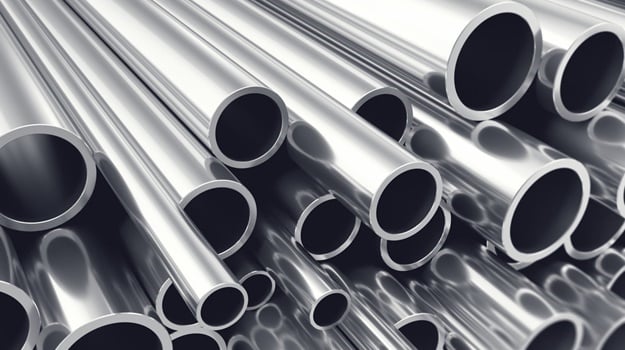
- In the first half of 2021, ArcelorMittal clawed back the losses seen in the first half of 2020.
- The company says that rail challenges may become a new norm or even deteriorate.
- Some 30% of ArcelorMittal's raw materials transported by road could ideally be handled by rail.
Shares in steel producer ArcelorMittal South Africa dived as much as 10% on Thursday despite the company posting what it called its strongest half-year results in a decade.
The company share price had opened at R7.39 but quickly tumbled to R6.30 nearly two hours later, as the company presented earnings that showed a recovery from the losses of the first half of 2020, due to an uptick in global and domestic steel demand.
By 14:00, shares were changing hands at R6.68.
In July 2020, ArcelorMittal temporarily idled furnaces at Vanderbijlpark and Vereeniging as demand slowed due to the impact of Covid-19 globally and domestically.
Operating profit increased from a loss of R1.5 billion in the first half of 2020, to a profit of R2.9 billion, financial statements for the six months to end June showed. Headline earnings swung into profit of R2.4 billion, from a loss of R2.6 billion, in a 223 cents per share profit.
"Headline profit of R2 482 million recovered from a loss of R2 613 million, amounting to a 223 cents per share profit against 239 cents loss for the comparative period in 2020.
"The recovery in the global steel environment since the second half of 2020, has accelerated in 2021," the company said.
"Activity levels in steel markets have continued to recover. Strong demand and low supply chain inventories have supported a recovery in steel spreads, which is the difference between steel prices and raw material costs."
Transnet challenges
The company said challenges in the first half of the year included two Covid-19 waves, ramp-up challenges associated with restoring and accelerating production in the complex integrated steelmaking environment, a long maintenance stop at Newcastle's blast furnace to address damage caused by the hard lockdown, and a "highly inconsistent rail service which led to frequent" and costly operational stops.
CEO Kobus Verster lamented the challenges facing Transnet operations, which have led to disruptions to the company’s supply chain. One of the problems faced by Transnet included cable theft, affecting the operation of wagons.
"The risk is that it can become a new norm and potentially even deteriorate further," said Verster.
He said the company was working very closely with Transnet and that there had been improvements in the past three weeks.
"But we have to continuously look at mitigating actions if the situation further deteriorates."
He said almost 30% of the company’s raw materials was transported by road, a volume which could ideally be handled by rail. Transnet port operations were in recent weeks hit by civil unrest that shut port operations in Richards Bay and Durban. This disturbance was followed by a cyberattack at its port terminal, but ArcelorMittal said it was not affected by the attack.
